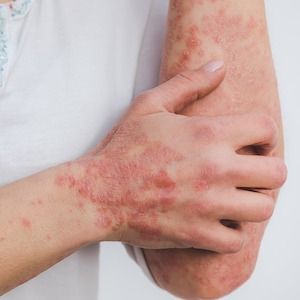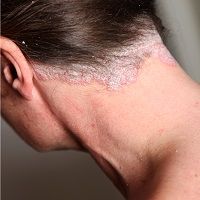Article
Ixekizumab Found to Be Beneficial for Plaque Psoriasis Patients with Challenging Body Areas
Author(s):
Recent clinical trial data from UNCOVER-1 and UNCOVER-2 demonstrated the positive effects of ixekizumab use in adult plaque psoriasis patients.
Alice B. Gottlieb, MD, PhD

A recent study found that ixekizumab may provide benefits for moderate-to-severe plaque psoriasis (PsO) patients for up to 5 years, despite multiple challenging body areas being affected concurrently.
The study, led by Alice B. Gottlieb, MD, PhD, of Mount Sinai’s Icahn School of Medicine, was conducted in order to examine the effects of ixekizumab—a high-affinity, monoclonal antibody known to selectively target interleukin-17A—on PsO patients with multiple challenging body areas (scalp, nails, and palmoplantar areas).
Gottlieb and colleagues noted that PsO patients with the condition found in these regions may have a disproportionately greater disease burden.
The goal of their study was to “assess comprehensive clearance by measuring the ability of ixekizumab to achieve complete skin clearance (100% improvement from baseline in Psoriasis Area and Severity Index [PASI 100]) for up to 5 years when multiple challenging body areas (scalp, nails, and palmoplantar areas) are involved.”
Background
The investigators assessed ixekizumab during both trials, known as UNCOVER-1 and UNCOVER-2. The trials were randomized, double-blind, multicenter, Phase 3 clinical trials testing moderate-to-severe plaque PsO patients on the treatment’s ability to achieve complete skin clearance.
The primary eligibility criteria used by the investigators to recruit participants were being over 18 years of age, reporting a Psoriasis Area and Severity Index (PASI) score of ≥12 by screening and baseline meetings, ≥10% body surface area affected by the time of screening and baseline meetings, and a Static Physician’s Global Assessment of ≥3.
The researchers analyzed participants who were given the approved-label dose of ixekizumab every 2 weeks (Q2W) for the first 12 weeks and then every 4 weeks following Week 12 through the Maintenance Period lasting from Weeks 12 to 60.
Findings
The studies’ investigators found that it may be more challenging for clinicians to treatPsO involvement over multiple challenging body areas. They also found that of study participants who reached complete area-specific PsO clearance of nail, scalp, and/or palmoplantar areas by the 60th week of treatment, a majority of those participants also achieved PASI 100 at that same time.
They also found that PASI 100 responses were able to be sustained 5 years later (Week 264) of ixekizumab treatment, demonstrating that the treatment may provide benefits for PsO patients for up to 5 years, despite the existence of multiple challenging body areas.





